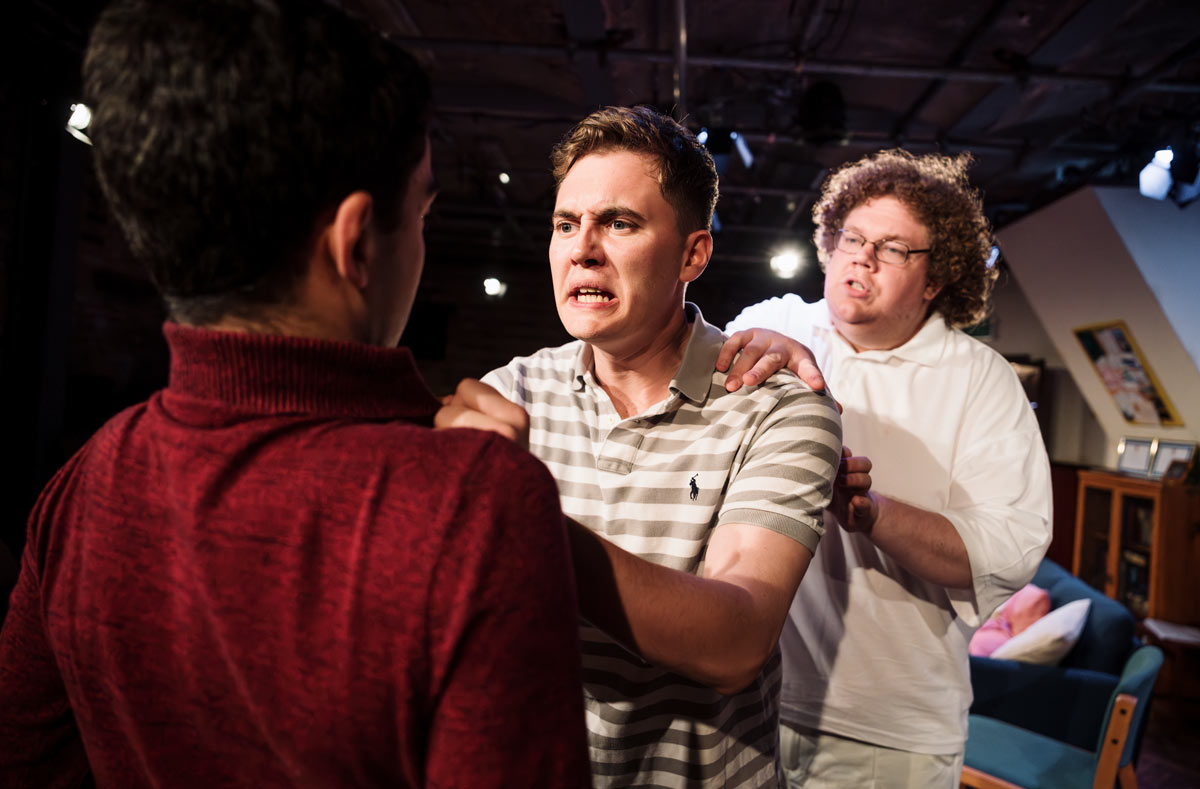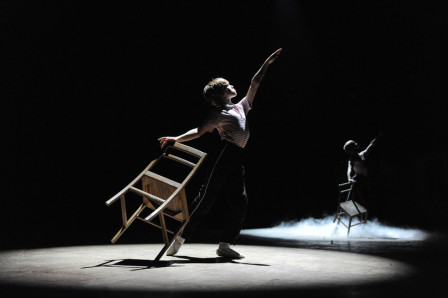Review: GENTLEMEN at Arcola
A full 1,296 days after it was originally due to open, Matt Parvin’s GENTLEMEN —set amidst the environs of academia — finally shakes off its Covid cloak and reaches an audience. Under the direction of Richard Speir the play was fortunate enough to benefit from an Arts Council England grant and monies from other worthy benefactors on its journey to opening night at the Arcola. So was it worth the extended wait?
 Gentlemen at the Arcola Theatre. Photo Alex Brenner.
Gentlemen at the Arcola Theatre. Photo Alex Brenner.
Firstly it would be fitting to mention the three actors Charlie Beck, Edward Judge and Issam Al Ghussain who facilitate the contained action of the appropriately dialogue-heavy piece, with controlled performances which more than do justice to the sharp observational writing. A laddish guy Greg, intimidates a possibly bi-sexual fellow student Caspar and finds himself in front of the welfare officer Timby.
Ranged over several meetings, the worm finally turns in the last scene presented in the first half, when the bullied becomes the aggressor and reveals the extent to which his patience has run out and what he intends to do to bring about societal change. As a bizarre appetiser, anyone who is considering attending a performance should be aware that Spanish dictator General Franco makes an appearance where there are crumpets, much foot rubbing and possibly even some inappropriate touching.
The three main characters are all dealing with their own issues and their personalities are presented in ways which require the audience to feel sympathy, empathy, revulsion and contempt towards each in turn. As the play tiptoes around whether the bully is the victim and the victim the bully, it falls on the mediator to take the brunt of hostility for his fence-sitting when in their desperation, both students threaten him with a false allegation of inappropriate behaviour if he doesn’t take their side. By this point, what had been a thoroughly promising yarn meanders slightly and the ending feels less of a cliffhanger and more of a dangling loose end. However, on the way to the final blackout, there is a great deal of substance and social commentary which, with a little fine tuning (and a suitably definite and dramatic denouement) would result in a taut and tense play. It’s not perfect, but it certainly has promise and everyone involved should be very proud to have finally presented the piece after such a long and extremely exacting period of uncertainty.
Latest News

 Is The Great Gatsby, starring Regé-Jean Page, heading to the West End?
11 February 2026 at 15:40
Is The Great Gatsby, starring Regé-Jean Page, heading to the West End?
11 February 2026 at 15:40

 Production photos of UNFORTUNATE: THE UNTOLD STORY OF THE SEA WITCH released
11 February 2026 at 15:14
Production photos of UNFORTUNATE: THE UNTOLD STORY OF THE SEA WITCH released
11 February 2026 at 15:14

 Review Round-Up: THE UNLIKELY PILGRIMAGE OF HAROLD FRY at the Theatre Royal Haymarket
11 February 2026 at 14:19
Review Round-Up: THE UNLIKELY PILGRIMAGE OF HAROLD FRY at the Theatre Royal Haymarket
11 February 2026 at 14:19

 BILLY ELLIOT THE MUSICAL returns to the West End for a limited season
11 February 2026 at 13:50
BILLY ELLIOT THE MUSICAL returns to the West End for a limited season
11 February 2026 at 13:50
